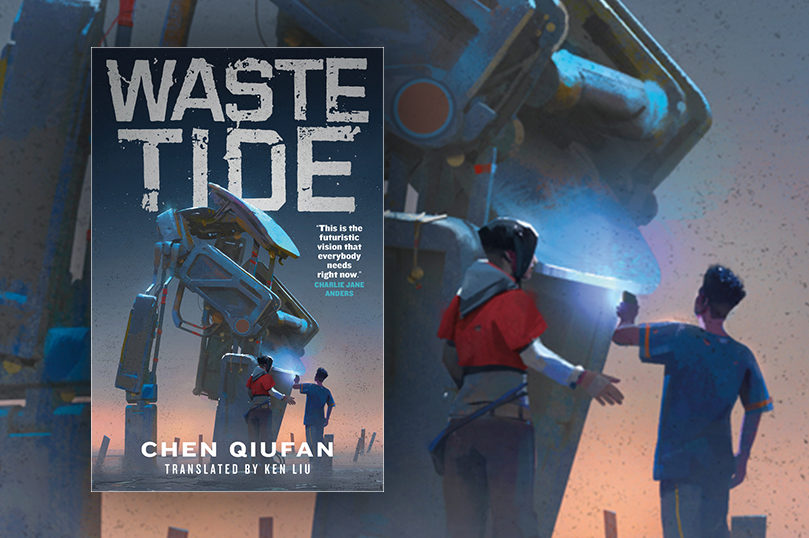by a frog
In a world where our future is uncertain, science fiction authors have always imagined what society may become. Near-future science fiction stories are an exercise in how the present can predict our future. Sometimes, they’re also a warning.
New York Times bestselling author Cory Doctorow says his latest near future sci-fi novel, Radicalized, was “written to master my own concerns as the darkest timeline has only gotten worse.” These stories force us to confront the consequences of our actions and the system that dictates why and what we do. Here are five new and upcoming titles that envision what’s in store for the Earth and its next generation.
Radicalized by Cory Doctorow
 Doctorow introduces us to tales of immigration, corruption, and survivalism against the backdrop of a dark American future in his collection of urgent science fiction novellas.
Doctorow introduces us to tales of immigration, corruption, and survivalism against the backdrop of a dark American future in his collection of urgent science fiction novellas.
In the title story, “Radicalized”, people are dying at the hands of America’s insurance companies. Their illnesses are curable, but necessary treatments are unaffordable without the financial assistance these companies refuse to provide. The people choose to suffer silently no longer and launch an uprising against the companies holding their health hostage. Amidst the violence, a man is desperate to secure funding for an experimental drug that could cure his wife’s cancer.
Vigilance by Robert Jackson Bennett
 Vigilance is a dark science fiction action parable of an America that has permanently surrendered to gun violence, and it’s only a few years away.
Vigilance is a dark science fiction action parable of an America that has permanently surrendered to gun violence, and it’s only a few years away.
In the year 2030, “Vigilance” is a reality game show that tests the ability of American contestants to detect foreign and domestic threats. Survivors of the game receive a cash prize if they can outlast the shooters in the “game environment,” and executive producer John McDean is about to find out what it’s like to be a contestant.
The Test by Sylvain Neuvel
 In Neuvel’s vision of near-future Britain, the British Citizenship Test is far more than a series of questions about the country, its laws, and its history.
In Neuvel’s vision of near-future Britain, the British Citizenship Test is far more than a series of questions about the country, its laws, and its history.
Idir Jalil is taking the citizenship test on behalf of himself, his wife, and his two children. He believes he is prepared, but when his exam takes an unexpected turn the powers of life and death fall into his hands. Like an episode of Black Mirror, the reality of this novella seems terrifyingly close.
Waste Tide by Chen Qiufan; translated by Ken Liu
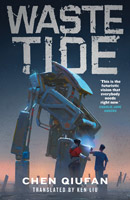 The world of Waste Tide is even closer than you might think. It was inspired by Qiufan’s experience growing up near Guiya, China, where the largest e-waste recycling center in the world is located.
The world of Waste Tide is even closer than you might think. It was inspired by Qiufan’s experience growing up near Guiya, China, where the largest e-waste recycling center in the world is located.
The UN has referred to the area as an “environmental calamity.”
In the world of Waste Tide, protagonist Mimi is a waste worker on Silicon Isle, an island off the coast of China submerged in the world’s electronic waste. Migrant workers come for a chance at a living wage and a better life, but conflicts between those in power, local gangs, and eco-terrorists are bubbling to the surface. When it seems like all out war will break out, Mimi must decide whether she will uphold the status quo or try to shape a new world.
Stealing Worlds by Karl Schroeder
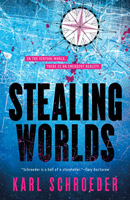 From the author of Lockstep, comes a near-future science fiction, hacker heist. In mid-21st century America, total surveillance is the norm. The developers of the surveillance networks are also responsible for building popular LARP game worlds, the only place where one can escape the watchful eyes of smart-glasses and the world network.
From the author of Lockstep, comes a near-future science fiction, hacker heist. In mid-21st century America, total surveillance is the norm. The developers of the surveillance networks are also responsible for building popular LARP game worlds, the only place where one can escape the watchful eyes of smart-glasses and the world network.
In Stealing Worlds, Sura Neelin is jobless and on the run and the game worlds may be her only opportunity to escape and find a better life.
 About Waste Tide:
About Waste Tide:
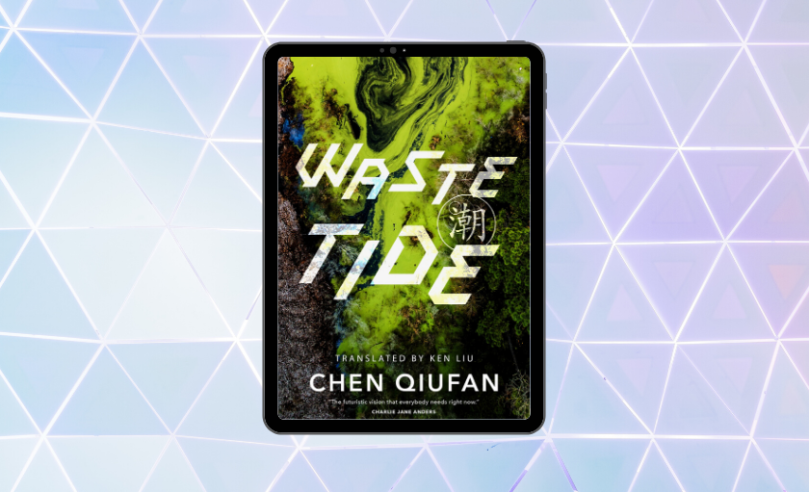






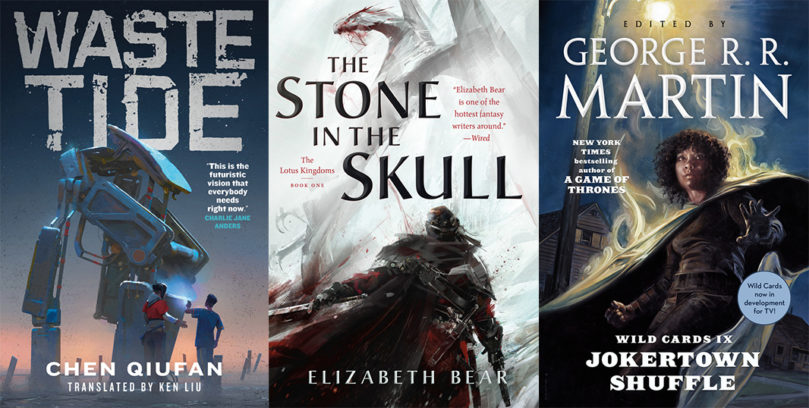
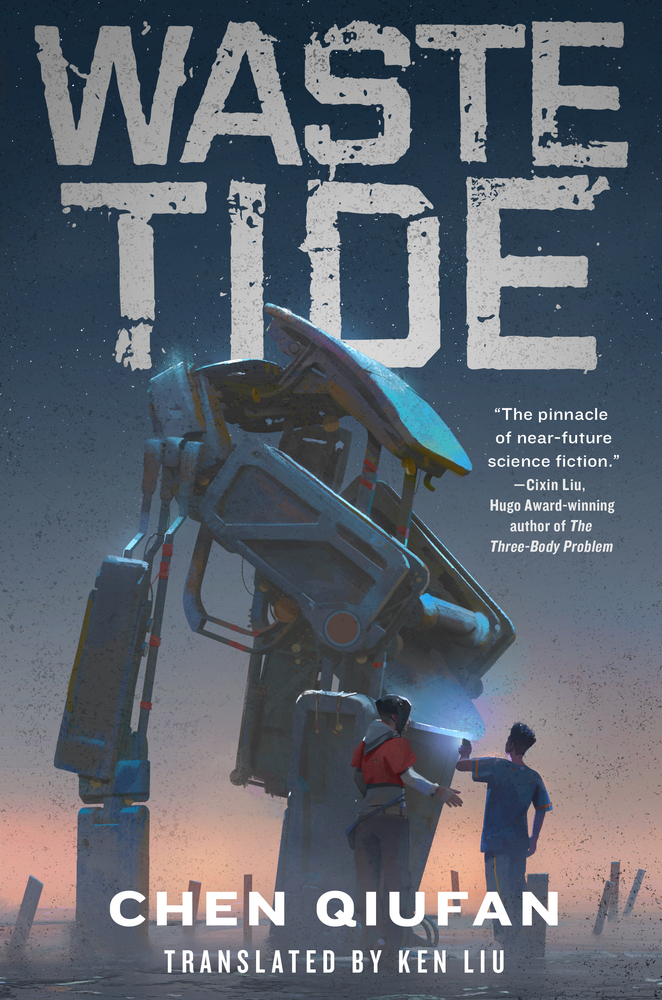
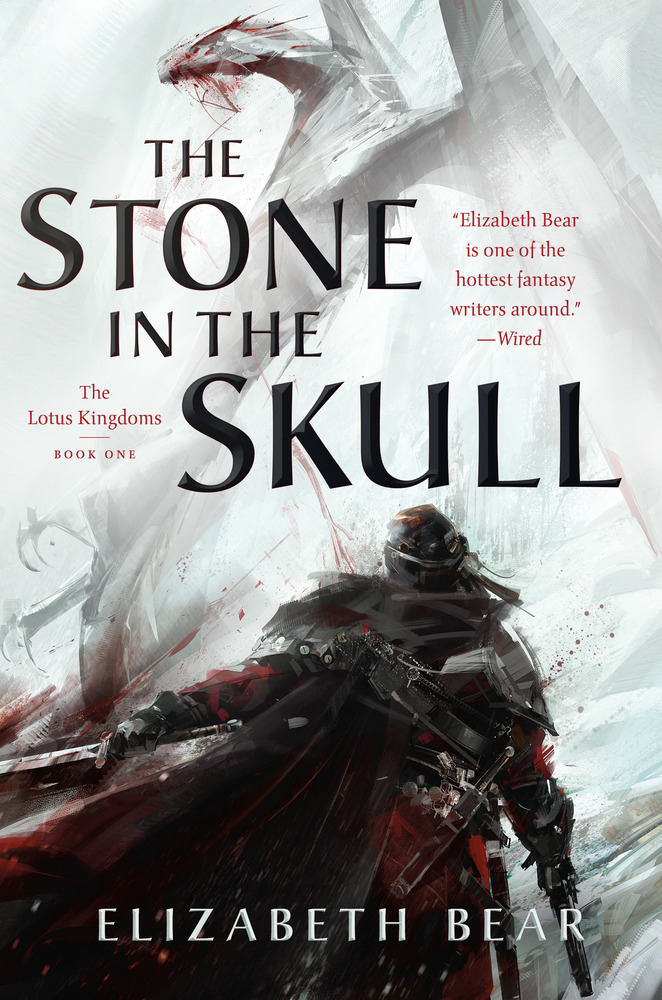
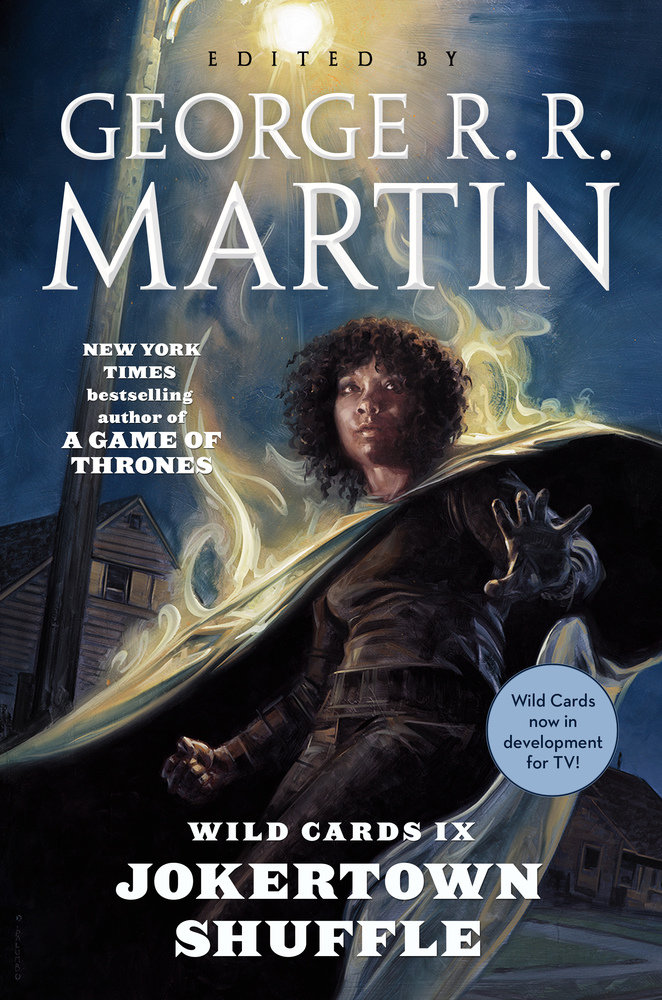
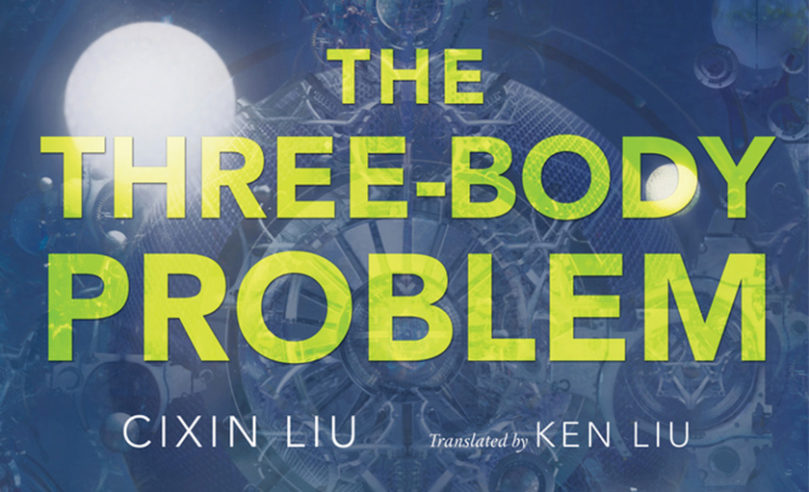
 Waste Tide
Waste Tide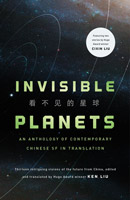 “A Hundred Ghosts Parade Tonight” by Xia Jia (translated by Ken Liu and featured in Liu’s
“A Hundred Ghosts Parade Tonight” by Xia Jia (translated by Ken Liu and featured in Liu’s 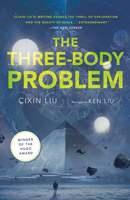 The Three-Body Problem
The Three-Body Problem




